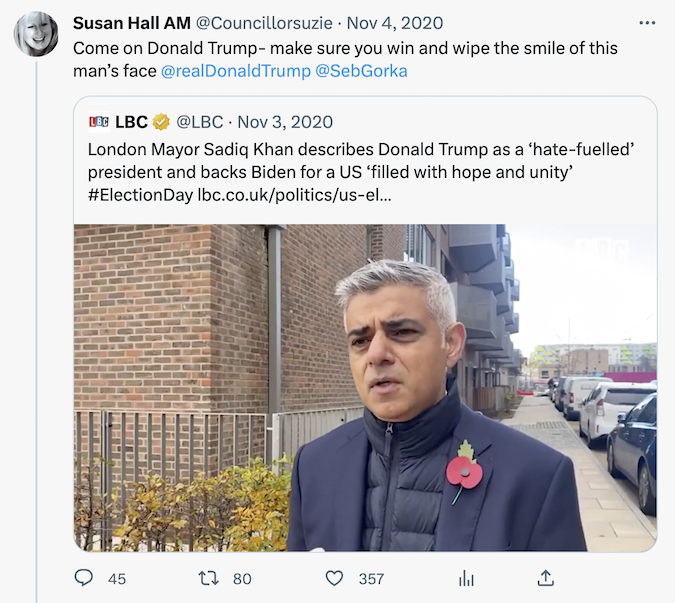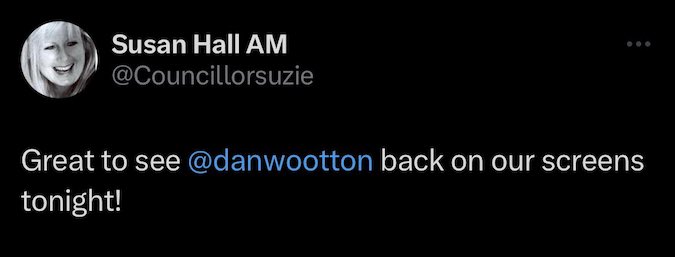In the sense that the only thing worse than being talked about is not being talked about, Michael Gove’s big housing speech had some grains of good news for London and Sadiq Khan.
Sure, there was a slightly formulaic spot of Khan-bashing – the allegation that “the Mayor’s failure on housing, like his failure on crime and his failure on transport, undermines the vitality and attractiveness of our capital.” We are coming up to an election and presenting Khan’s mayoralty as a cautionary example of Labour’s inability to deliver was clearly just too tempting, especially in the wake of the Uxbridge & South Ruislip by-election.
But alternately attacking and ignoring London and its Mayor have been a consistent government theme in recent years. Gove’s predecessor Robert Jenrick took more than a year to agree Khan’s 2020 London Plan, describing his housing delivery as “deeply disappointing”, demanding he water down protections for the Green Belt, open spaces and industrial sites, and allow lower densities and more car parking in suburban locations. And two years ago, in articulating his “levelling up” agenda, London’s previous Mayor, the then Prime Minister Boris Johnson, spoke of the capital only as the engine for an overheated housing market and as a drain on talent in the rest of the country.
So, while Gove may have been stating the obvious when he said making the most of the capital’s potential is “critical to the nation’s success”, the statement was nonetheless welcome. What’s more, the Secretary of State committed to working with the Mayor to “unlock all the potential of London’s urban centre, while preserving the precious low-rise and richly green character of its suburbs such as Barnet and Bromley”.
There’s quite a lot going on there, both lofty principles and low politics. At one level, Gove’s was a classic urban renaissance prescription: focusing new development in highly accessible central locations, where infrastructure such as school places is already present. But there was also electoral calculation. Ever since Johnson ran for Mayor in 2008, pledging to save the suburbs from the encroachment of high-rise apartment buildings, protecting the suburbs – and London’s safest Conservative seats – from new development has been at the heart of Conservative policy.
To unlock potential, Gove proclaimed the launch of “Docklands 2.0”, invoking Michael Heseltine, the patron saint of urban renaissance (who lost the Conservative whip in 2017 as a result of his opposition to Brexit). This “mission of national importance” would see 65,000 homes built in east London’s riverside, from Beckton and Silvertown to Charlton and Thamesmead.
Such plans have a rich heritage as part of the original Heseltine vision for the East Thames Corridor, as the heart of London Thames Gateway, and as the focus for the City East scheme developed by my former colleagues in Mayor Ken Livingstone’s architecture and urbanism unit.
Current London Plan targets already suggest that 65,000 homes are achievable in these “opportunity areas”, but realising that potential has been slow. Many sites lack the infrastructure needed to develop at scale, or need investment in remediation to make them suitable for housing. In that respect, Gove’s commitment to look at the transport investments needed, and to invest government money where it can make a difference, will be welcomed.
There is a catch, though. Gove offered the carrot of working with Khan, but also issued an explicit threat in bellicose terms: “I reserve the right to step in to reshape the London Plan if necessary and consider every tool in our armoury – including development corporations.” It doesn’t sound as if these would be mayoral development corporations, such as those set up by Johnson to oversee the Olympic Park and Old Oak projects, but 1980s-style impositions from Whitehall.
Gove’s political jabs at the Mayor have been reciprocated. Tom Copley, Deputy Mayor for Housing, has defended Khan’s record and described the government’s commitments as “thin gruel”, with funding decisions for vital infrastructure lost in the long grass of Treasury tactics. London Councils housing lead Darren Rodwell, also leader of east London borough Barking & Dagenham, has called for more funding for affordable housing and a permanent relaxation of rules on using Right-to-Buy receipts.
But behind the point-scoring and alongside genuine arguments about resource allocation, the Secretary of State’s speech does seem to mark a dawning awareness that ignoring the UK’s capital when seeking to grow the nation’s economy is a dead end. If Gove can back his vision for Docklands 2.0 with funds and facilitation, and can resist the temptation to take over and micro-manage, he may find himself in an awkward alliance with Khan, even as general and mayoral elections approach.
Twitter: Richard Brown and On London. Photograph from Newham Council. If you value On London and its writers, become a supporter or a paid subscriber to editor and publisher Dave Hill’s Substack.












